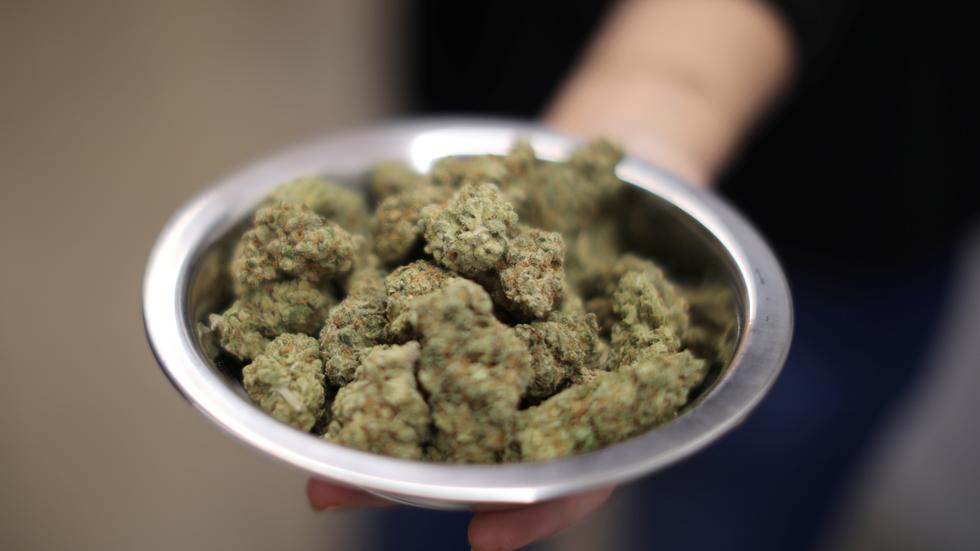HARI SREENIVASAN: On New Year's Day, California joined the growing list of states and the District of Columbia where it is now legal to sell marijuana. While state and local leaders may see marijuana as a taxable cash crop, the Trump administration has a different point of view. On Thursday, Attorney General Jeff Sessions rescinded an Obama administration policy that discouraged federal prosecutors in most instances from bringing charges in places where marijuana is legal under state law. Joining me now from Washington, D.C., is John Hudak, the deputy director of the Center for Effective Public Management at the Brookings Institution, to help assess the impact of this move.
So let's just, in plain English, what does the attorney general calling for?
JOHN HUDAK: What the attorney general is calling for is the freeing up for U.S. attorneys, for federal prosecutors to start to go after state legal marijuana businesses who are complying with state law and are serving customers in states that have chosen to reform their marijuana laws. Something that the Obama administration put protections in against, the Trump administration is repealing that.
HARI SREENIVASAN: And this was something the Attorney General Sessions said that he wasn't really going to take action on during his confirmation hearing, right?
JOHN HUDAK: The attorney general has had a lot of mixed language when it comes to this issue. He's been cagey. There have been moments where he has suggested that he saw the standing policy as a good one, or one to keep in place, and there are other moments where you hear the attorney general using that type of “War on Drugs” language about marijuana that we really haven't heard from the top tiers of administrations for, for 15 or 20 years.
HARI SREENIVASAN: But what happens? There are small businesses that are taking steps already in states where it is legal, and there are investors, there's possible bank loans, all sorts of institutions that are involved in this economy. What happens when this statement from on high comes in? Does it add some uncertainty into how these businesses fare?
JOHN HUDAK: Well certainly the statement itself, the policy change itself, adds uncertainty to this industry and of course uncertainty is bad for any business. But the statement itself won't necessarily enact change. Change will happen when U.S. attorneys, working closely with DEA and other law enforcement entities begin enforcing against these businesses. That day may never come, but if it does, that will be a moment where the industry feels the real effects of this policy. And you'll start to see ripple effects spreading out from there.
HARI SREENIVASAN: There's already been pushback from Senator Gardner in Colorado and, how does states respond to this? What can they do to encourage what they might see as an important part of their economy?
JOHN HUDAK: Well you're right about Senator Gardner. In fact dozens and dozens of House members and senators have come out and slammed the attorney general for this policy, in part because it actually goes back on what were statements by the president when he was running for office about his view on this issue. He said that it should be a states rights issue.
So what do states have to do? What can they do? First off, they don't have to help the federal government enforce federal law. There is a protection against that under the 10th Amendment to the Constitution. And so you will see a lot of states, most states probably, just say to the federal government, if you want to enforce your laws go ahead and do it on your own. You're not getting a dime of state revenue to help do this and that really is the first line of protection that states have.
HARI SREENIVASAN: But what about if the DEA wants to come in to a growing operation in California or Colorado and carry out what they say, “This is my job, I'm doing this, what the federal law says, right?”

JOHN HUDAK: There's really nothing states can do. If DEA goes into a state with recreational marijuana and begins to arrest people, shut down businesses, seize assets, seize plants. There's not much the state can do to combat that. It is illegal under federal law. DEA and U.S. attorneys have the authority to investigate and bring charges against these entities and it would be a difficult day for the marijuana industry. It would be a day that may frustrate governors across the country but it's a day that would be completely in compliance with federal law.
HARI SREENIVASAN: All right John Hudak of the Brookings Institution, thanks so much.
JOHN HUDAK: Thank you.











